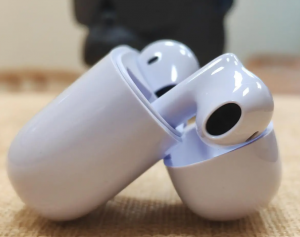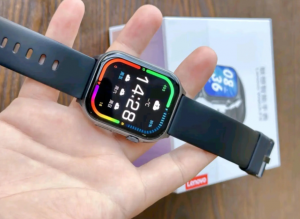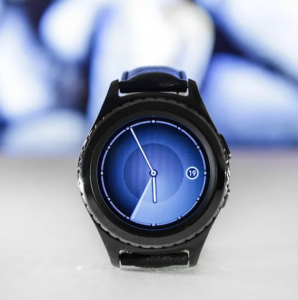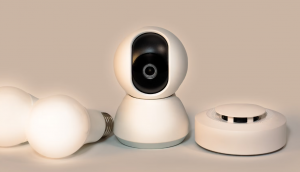Advances in Health Tech: How Technology is Revolutionizing Healthcare
Introduction to Health Tech Advancements
In recent years, the integration of technology into healthcare has ushered in a new era of medical advancements, transforming the way patients receive care and how providers deliver it. This article explores the profound impact of various technological innovations on the healthcare landscape.
Telemedicine and Virtual Healthcare
Telemedicine, once a niche service, has now become mainstream, especially accelerated by the global COVID-19 pandemic. It involves the remote diagnosis and treatment of patients through telecommunications technology. During the height of the pandemic, telemedicine provided a crucial lifeline, enabling healthcare providers to safely consult with patients while minimizing exposure risks. Moving forward, the adoption of telemedicine is expected to continue growing, offering convenient access to medical expertise and reducing barriers to healthcare services.

Artificial Intelligence in Diagnostics
Artificial Intelligence (AI) has revolutionized diagnostics by enhancing the accuracy and efficiency of medical assessments. AI-powered tools can analyze vast amounts of patient data, from medical images to genetic information, to detect diseases earlier and with greater precision than traditional methods. For example, AI algorithms are now capable of diagnosing certain types of cancers more accurately than human radiologists. As AI continues to evolve, its role in diagnostics will likely expand, promising even more sophisticated healthcare solutions.
Robotics and Automation in Surgery
Robotics and automation have redefined surgical procedures, offering unprecedented precision and control to surgeons. Robotic systems enable minimally invasive surgeries with smaller incisions, leading to faster patient recovery times and reduced complications. From cardiac surgeries to orthopedic procedures, robotic assistance has proven beneficial across various medical specialties. The integration of artificial intelligence further enhances robotic surgery by providing real-time guidance and feedback to surgeons, ensuring optimal outcomes for patients.
Health Wearables and IoT Devices
The proliferation of health wearables and Internet of Things (IoT) devices has empowered individuals to take charge of their health through continuous monitoring. These devices, ranging from fitness trackers to smart glucose monitors, collect real-time health data that can be shared with healthcare providers for better-informed decision-making. Furthermore, the seamless integration of wearable technology with Electronic Health Records (EHR) systems improves care coordination and enhances patient engagement in managing chronic conditions.
Blockchain in Healthcare Data Security
Blockchain technology offers a decentralized and secure way to store and share healthcare data, addressing concerns related to data privacy and integrity. By creating tamper-proof records of patient information, blockchain enhances interoperability between healthcare providers while safeguarding sensitive medical data from unauthorized access or breaches. Several healthcare organizations are exploring blockchain applications for managing medical records, billing, and clinical trials, underscoring its potential to revolutionize data management in healthcare.
3D Printing in Medicine
3D printing technology has unlocked new possibilities in medical treatments, particularly in creating personalized prosthetics, implants, and even organs. This revolutionary approach allows for the customization of medical devices to fit individual patient anatomy, improving comfort and functionality. Beyond physical applications, 3D printing holds promise in pharmaceuticals by enabling the precise formulation of drugs and facilitating on-demand production in remote or underserved areas.
Genomics and Personalized Medicine
Advancements in genomics have paved the way for personalized medicine, tailoring treatment plans based on an individual’s genetic makeup. By analyzing genetic data, healthcare providers can predict susceptibility to certain diseases, optimize drug therapies, and minimize adverse reactions. While the cost and complexity of genomic testing remain challenges, ongoing research and technological innovations continue to drive progress towards more accessible and effective personalized healthcare solutions.
Virtual Reality (VR) in Therapy and Rehabilitation
Virtual Reality (VR) technology is increasingly used in therapeutic settings to treat various mental health conditions and aid in physical rehabilitation. By creating immersive environments, VR therapy offers patients a safe space to confront and manage anxiety, phobias, and PTSD. In rehabilitation, VR simulations help patients regain motor skills and mobility after injuries or surgeries, accelerating recovery times and improving functional outcomes.
Big Data Analytics in Healthcare
The utilization of big data analytics in healthcare enables predictive modeling, real-time monitoring, and evidence-based decision-making. By analyzing large datasets from diverse sources, including electronic health records, wearables, and public health databases, healthcare providers can identify patterns, detect outbreaks early, and personalize treatment plans. The integration of artificial intelligence further enhances the capabilities of big data analytics, making healthcare delivery more efficient and outcomes-driven.
Augmented Reality (AR) in Medical Training
Augmented Reality (AR) technology is reshaping medical education by providing immersive learning experiences and simulating complex medical procedures. Medical students and professionals can practice surgical techniques and anatomy visualization in a realistic virtual environment, enhancing their skills and confidence. As AR applications become more sophisticated and accessible, they are expected to play a pivotal role in standardizing medical training and improving patient safety through better-prepared healthcare providers.
Internet of Medical Things (IoMT)
The Internet of Medical Things (IoMT) encompasses connected medical devices and applications that streamline healthcare delivery and enhance patient care. From remote monitoring of vital signs to smart insulin pumps, IoMT devices enable continuous health monitoring and timely interventions. However, the proliferation of IoMT also raises concerns about data security and privacy, prompting ongoing efforts to establish robust cybersecurity measures and regulatory frameworks in healthcare settings.
Emerging Technologies in Drug Discovery
Innovations in AI and machine learning are transforming the drug discovery process, accelerating the identification of promising drug candidates and reducing time-to-market. Through predictive algorithms and virtual screening techniques, researchers can sift through vast chemical libraries and predict drug interactions with greater accuracy. Additionally, advancements in high-throughput screening and gene editing technologies are expanding the scope of precision medicine, offering targeted therapies for previously untreatable diseases.
Regulatory Challenges and Ethical Implications
While technological advancements hold immense promise for improving healthcare outcomes, they also pose regulatory challenges and ethical considerations. Balancing innovation with patient safety requires robust regulatory frameworks to ensure the efficacy, safety, and ethical use of health tech solutions. Key considerations include data privacy, algorithm transparency, patient consent, and equitable access to healthcare innovations. Addressing these challenges is crucial to fostering trust among stakeholders and advancing the responsible adoption of health technologies.
Conclusion
The evolution of health technology continues to reshape the healthcare landscape, offering unprecedented opportunities to improve patient outcomes, enhance medical efficiency, and transform healthcare delivery. From AI-powered diagnostics to personalized medicine and virtual reality therapies, these innovations hold the potential to address current healthcare challenges and pave the way for a healthier future. As technology continues to advance, ongoing collaboration between healthcare providers, technologists, regulators, and patients will be essential to harnessing its full potential responsibly.
Unique FAQs
- How does telemedicine benefit patients in remote areas? Telemedicine provides remote patients with access to specialized healthcare services without the need for travel, reducing geographical barriers to medical care.
- What are the ethical concerns surrounding AI in healthcare? Ethical concerns include data privacy, algorithm biases, and the ethical use of AI in making critical healthcare decisions that affect patient outcomes.
- **Can wearable technology replace traditional













Post Comment